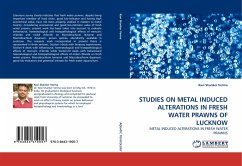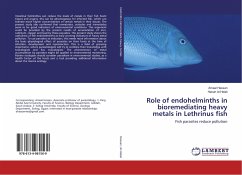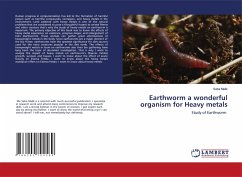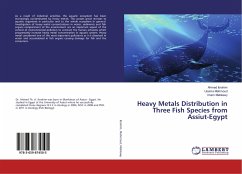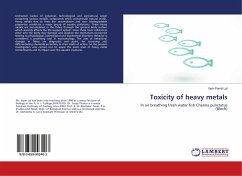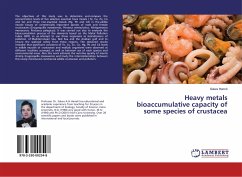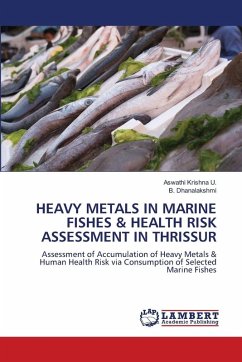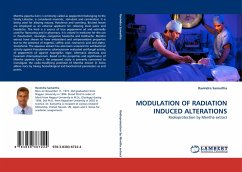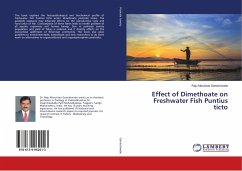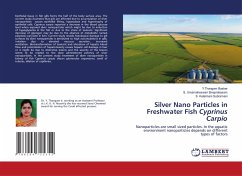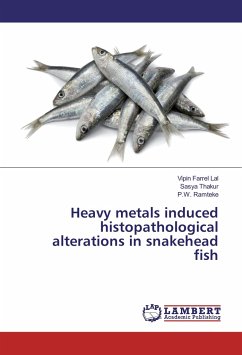
Heavy metals induced histopathological alterations in snakehead fish
Versandkostenfrei!
Versandfertig in 6-10 Tagen
37,99 €
inkl. MwSt.

PAYBACK Punkte
19 °P sammeln!
Of the many different toxic compounds present in aquatic ecosystems, the heavy metals are considered to be the most hazardous. It is clear that the anthropogenic input of heavy metals is much higher than the natural input. Therefore they are of prime interest, particularly in view of their high toxicity in relation to aquatic organisms (hydrobionts). The environmental impact of metals is of particular concern because, unlike organic compounds, they cannot be subject to chemical degradation beyond the elemental state; they can only be redistributed between abiotic and biotic components and inte...
Of the many different toxic compounds present in aquatic ecosystems, the heavy metals are considered to be the most hazardous. It is clear that the anthropogenic input of heavy metals is much higher than the natural input. Therefore they are of prime interest, particularly in view of their high toxicity in relation to aquatic organisms (hydrobionts). The environmental impact of metals is of particular concern because, unlike organic compounds, they cannot be subject to chemical degradation beyond the elemental state; they can only be redistributed between abiotic and biotic components and interact with their components. The changes of physical, chemical and biological parameters of water alter the behaviour of fish besides causing mortality. The studies carried out on various fishes have shown that heavy metals may alter the physiological activities and biochemical parameters both in tissues and in blood. It is a widely known by histological examination of tissues that these metals show biological accumulation of hazardous levels on the surface of the sediment in benthic and planktonic organisms and other organism by entering the food chain.



